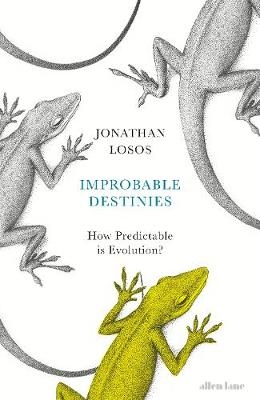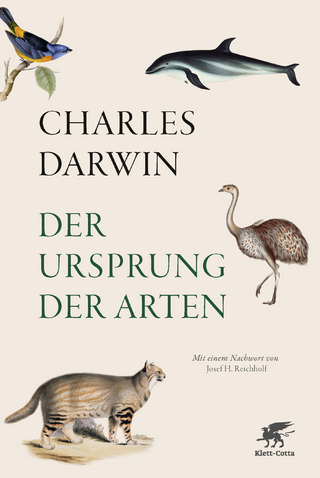
Improbable Destinies
How Predictable is Evolution?
Seiten
2017
Allen Lane (Verlag)
978-0-241-20192-3 (ISBN)
Allen Lane (Verlag)
978-0-241-20192-3 (ISBN)
- Titel ist leider vergriffen;
keine Neuauflage - Artikel merken
A dazzling tour of evolution in action that sheds light on one of the greatest debates in science
The natural world is full of fascinating instances of convergence: phenomena like eyes and wings and tree-climbing lizards that have evolved independently, multiple times. Convergence suggests that evolution is predictable, and if we could replay the tape of life, we would get the same outcome. But there are also many examples of contingency, cases where the tiniest change - a random mutation or an ancient butterfly sneeze - caused evolution to take a completely different course.
So are we humans, and all the plants and animals in the world today, inevitabilities or evolutionary freaks? What role does chance play in evolution? And what could it tell us about life on other planets?
In Improbable Destinies, renowned researcher Jonathan Losos reveals what the latest breakthroughs in evolutionary biology tell us about one of the greatest ongoing debates in science. Evolution can occur far more rapidly than Darwin expected, which has opened the door to something that was previously thought impossible: experimental studies of evolution in nature. Drawing on his own work with anole lizards on the Caribbean islands, as well as studies of guppies, foxes, field mice and others being conducted around the world, Losos reveals just how rapid and predictable evolution can be.
By charting the discoveries of the scientists who are rewriting our understanding of evolutionary biology, Improbable Destinies will change the way we think and talk about evolution.
The natural world is full of fascinating instances of convergence: phenomena like eyes and wings and tree-climbing lizards that have evolved independently, multiple times. Convergence suggests that evolution is predictable, and if we could replay the tape of life, we would get the same outcome. But there are also many examples of contingency, cases where the tiniest change - a random mutation or an ancient butterfly sneeze - caused evolution to take a completely different course.
So are we humans, and all the plants and animals in the world today, inevitabilities or evolutionary freaks? What role does chance play in evolution? And what could it tell us about life on other planets?
In Improbable Destinies, renowned researcher Jonathan Losos reveals what the latest breakthroughs in evolutionary biology tell us about one of the greatest ongoing debates in science. Evolution can occur far more rapidly than Darwin expected, which has opened the door to something that was previously thought impossible: experimental studies of evolution in nature. Drawing on his own work with anole lizards on the Caribbean islands, as well as studies of guppies, foxes, field mice and others being conducted around the world, Losos reveals just how rapid and predictable evolution can be.
By charting the discoveries of the scientists who are rewriting our understanding of evolutionary biology, Improbable Destinies will change the way we think and talk about evolution.
Jonathan B. Losos is the Monique and Philip Lehner Professor for the Study of Latin America and Professor of Organismic and Evolutionary Biology at Harvard University. He is the recipient of a number of awards, including the Theodosius Dobzhansky Prize from the Society for the Study of Evolution and the David Starr Jordan Prize from the American Society of Naturalists.
| Erscheinungsdatum | 17.08.2017 |
|---|---|
| Verlagsort | London |
| Sprache | englisch |
| Maße | 160 x 241 mm |
| Gewicht | 634 g |
| Themenwelt | Sachbuch/Ratgeber ► Natur / Technik |
| Mathematik / Informatik ► Mathematik | |
| Naturwissenschaften ► Biologie ► Evolution | |
| ISBN-10 | 0-241-20192-6 / 0241201926 |
| ISBN-13 | 978-0-241-20192-3 / 9780241201923 |
| Zustand | Neuware |
| Haben Sie eine Frage zum Produkt? |
Mehr entdecken
aus dem Bereich
aus dem Bereich
Komplette Neuübersetzung. Mit einem Nachwort von Josef H. Reichholf.
Buch | Hardcover (2018)
Klett-Cotta (Verlag)
48,00 €
Wie die Vernichtung der Arten unser Überleben bedroht - Der …
Buch | Softcover (2023)
Penguin (Verlag)
15,00 €


